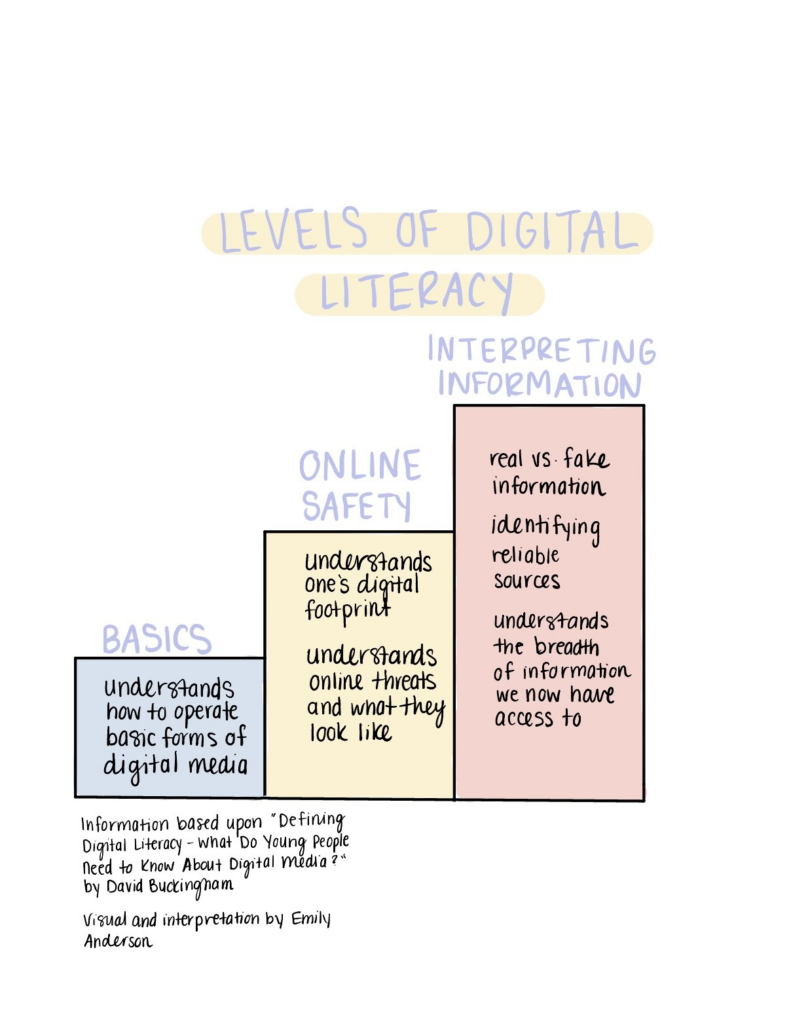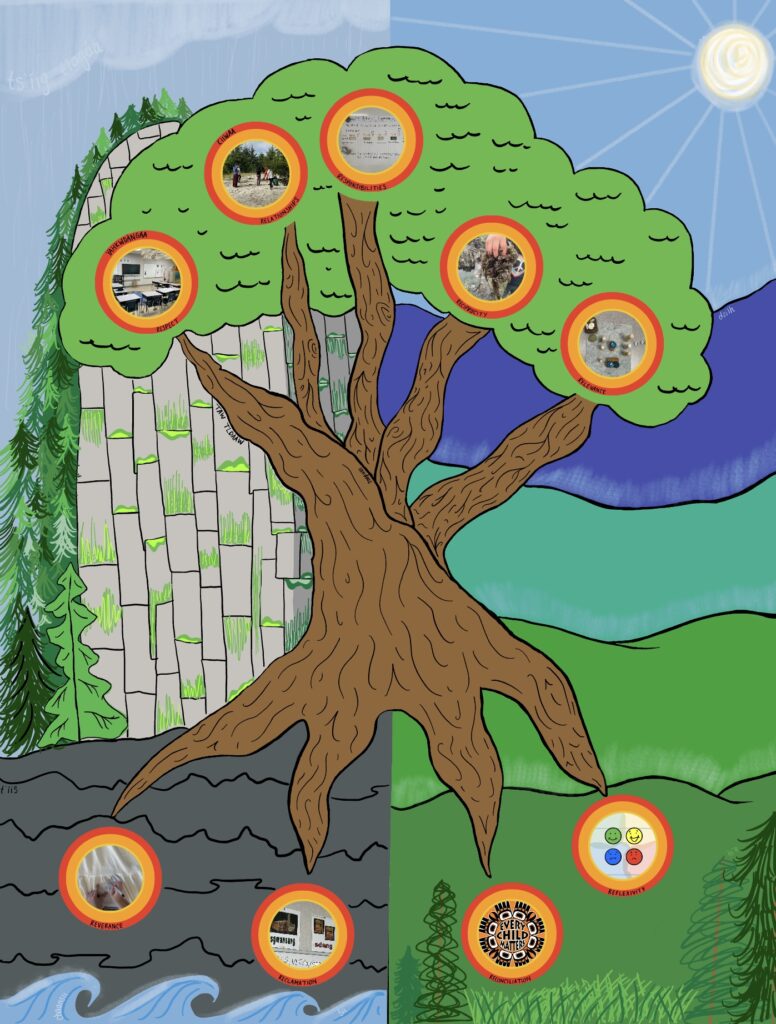Digital Literacy
When I was in Grade 11 a new course was offered called Digital Communications. We learned about how to identify reliable sources, the power and strategy behind advertisements, and impact that social media has on our well-being. Alongside this, we were taught alternative ways to use the technology we have access to such as listening to podcasts and using technology to demonstrate our learning. The greater theme of this course was to ensure that our class was becoming digitally literate. In this blog post, I will cover what it means to be digitally literate, and the different components of digital literacy. Digital literacy goes beyond reading and comprehension skills but requires us to consider the effects of consuming media on a personal and professional level.
Often times literacy is directly correlated with language. The term literacy implies that we are able to read and write while referring to the process of competence in a specific subject area. (Oxford Online Dictionary, Accessed October 19, 2023). We can be literate in many different areas beyond reading and writing such as mathematics, music, and digital media. We still need comprehension skills when analyzing digital sources, but an added level of filtration must be applied due to the accessibility of information and the culture that comes along with readiness of technology. To be digital literate, means that we can operate the basic functions of media, protect ourselves as consumers, and being able to interpret and interact effectively with the information we access. In this day and age, we as educators must “encompass the skills that youth must develop to be intentional consumers and users of digital technology” (Lauricella, 2).
David Buckingham argues that “digital media represent[s] the world rather than …reflect[s] it.” (Buckingham, 23). Digital footprint discusses the personal record that we leave online, while digital media reflects upon the world. In order to interpret our world in its current state we must be digitally literate to some degree. With the general access to technology and social media present today, it is arguable that most of us are digitally literate in the sense that we are able to operate and comprehend basic information that we come across. Although this is an important skill in becoming digitally literate and will serve future students well, it is simply not enough to get by on this aspect alone. It leaves us vulnerable to the dangers associated with media involvement.

To be digital literate means that we can acknowledge the true nature that comes along with the world of media. Online safety is closely related to the value of being able to interpret digital information as personal and professional consumers. In his article, David Beckham emphasises the importance of language in all forms of literacy. (Buckingham, 23). Being able to read between the lines will play a significant role in being able to protect ourselves online as well as extending this knowledge unto our students so they will be equipped with these skills throughout their life. Key components in interpreting media are being aware of its production and its intended audience. It is important to note that when dealing with media, everything is purposeful – even the elements that seem accidental. When we scroll seamlessly, everything that we are viewing is intentional. I feel like this is an extremely important fact that students should know. This also allows for time to reflect on the role that digital media plays in our life. Allowing for this space will inevitably play a role in developing our digital literacy skills.
Comprehending digital literacy is about learning more about our relationship with media and what that says about us as individuals and as a collective society. When we are digitally literate we are able to be the captain of our own ship and exercise more agency in how we go about our consumption levels. We also gain knowledge on how to use technology to our benefit, and not only be able to understand the basics, but master our usage. With the introduction of Artificial Intelligence, we will need these skills more than ever. It will be essential for us as future educators to become fully competent in these areas not only for our personal protection, but for the well-being and success of our future students.
Work Cited:
Buckingham, David. “Defining Digital Literacy – What Young People Need to Know About Digital Media”, Nordic Journal of Digital Literacy, 2015, 21 – 35.
Lauricella, Alexis R., Herdzina, Jenna, & Robb, Michael. “Early Childhood Educators Teaching of Digital Citizenship Competencies”, Computers and Education, 2020, 2.






